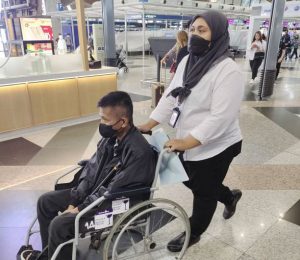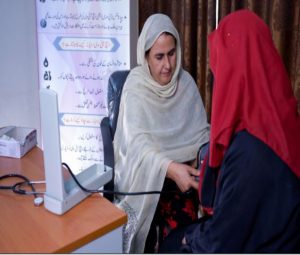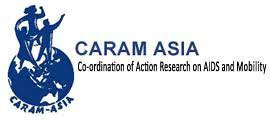
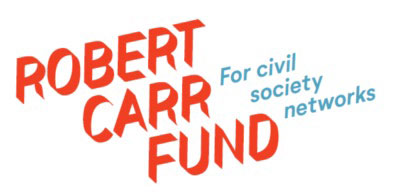
Prevention & Advocacy on Migrant’s HIV Issues, Enhancing Access to Health Services and Promoting HIV Positive Migrant’s Rights in Asia
CARAM Asia works for promotion and protection of migrant worker’s health rights with focus on HIV & AIDS and SRHR issues in the region. The network is presently working on the regional project titled “Prevention & Advocacy on Migrant’s HIV Issues, Enhancing Access to Health Services and Promoting HIV Positive Migrant’s Rights in Asia”. This projectis comprised of three years funding cycle from 2022 to 2024, funded by the Robert Carr Fund (RCF) for Civil Society Networks, aiming to address stigma and discrimination against HIV-positive migrant workers (MWs), enhance MW’s access to health services, conduct advocacy with key stakeholders for the protection of MWs’ health rights and address laws, policies and practices issues related to HIV, MW’s criminalization based on HIV-positive status and other health conditions. The project also covers the areas of awareness-raising on HIV prevention, conducting capacity building of the project partners, community-based organizations (CBOs), non-governmental organizations (NGOs), migrant community leaders, MWs etc.
The significant collaboration with CARAM Asia’s project partners in three Asian sub-regions— South Asia, comprising the Ovibashi Karmi Unnayan Programme (OKUP) in Bangladesh, SPEAK Trust in Pakistan, Community Development Services (CDS) in Sri Lanka, and POURAKHI in Nepal, Southeast Asia includes the North South Initiative (NSI) in Malaysia and Action for Health Initiatives (ACHIEVE) in the Philippines and Middle East features Migration Services and Development (MSD) in Lebanon—is leading to various activities being implemented by the project partners, which hold corresponding purposes.
The Robert Carr Fund (RCF) for Civil Society Networks has been instrumental in providing CARAM Asia with the ongoing financial support as it implements the current regional project for 2022 to 2024 funding cycle. The tremendous support from RCF in the past years and for the current project implementation makes it possible for CARAM Asia to work extensively with the project partners at national, international, and regional levels for advocacy and at community levels among MWs in sending and receiving countries by executing its overarching strategies. To learn more about RCF, please click this link here.
CARAM Asia’s Working Strategies:
PAR, which is identified as a core initiative of CARAM Asia, is designed to integrate migrants’ perspectives and points of view on HIV & AIDS, MW’s vulnerabilities to HIV, SRHR issues and other health conditions, and develop potential policy recommendations. Currently, a few research studies are being conducted under this project such as “Health of Bangladeshi Migrant Workers: A Cost Analysis from Social and Economic Perspective” and “Research on Workers’ Understanding about HIV and Barriers in Accessing Health Services in Malaysia” to give attention to unaddressed issues of MWs especially on health’s rights.
Recently, completed research studies under this project are “Identify the Risk Factors that make Migrant Workers More Vulnerable to Contracting HIV and What Interventions could be Taken to Reduce this Risk” in Sri Lanka and “Identify the Percentage of Migrants among Registered People Living with HIV (PLHIV)” in Pakistan produced fruitful key findings such as data acquisition on number of MWs with HIV and risk factors for HIV. These research outcomes are potentially being used for advocacy activities such as policy recommendations and to come up with insightful and research-based evidence on MWs and their current needs. For example, CDS has submitted research outcomes to important policy makers in Sri Lanka for further actions.
Built on the PAR, this strategy involves program policies and resource advocacy such as engagements between civil society organizations (CSOs) and relevant stakeholders. Within this strategy, CARAM Asia and its project partners are implementing well-established advocacy plans using the evidence-based from the PARs. For instance, advocacy meetings are being conducted with stakeholders including government officials, political representatives, NGOs, embassies, consulates, foreign service providers and others to advocate them on MWs’ needs. These are to achieve several outcomes; creating referral mechanisms for MWs at the airports in Pakistan, streamlining deportation process of MWs in Pakistan, sharing the research outcomes for the purpose of educating stakeholders with MWs’ needs in Pakistan, demanding the government for MWs’ health protection in Bangladesh, creating standard operating procedures (SOPs) for MWs’ protections in Lebanon, reforming the policies and laws for HIV-positive MWs in Nepal, addressing health issues and ensuring that HIV and AIDS-related activities and services are created based on the current needs of MWs in the Philippines. These activities demonstrate that CARAM Asia strongly advocates for the recognition of MW’s vulnerability to HIV & AIDS, and SRHR due to various factors involved in the migration process. CARAM Asia also advocates for the removal of discriminatory health policies which criminalize MWs based on HIV-positive status. Many of these project activities are designed to address these issues at various levels.
Strengthening the skills and capacity of CARAM Asia’s project partners is one of the influential elements in determining the success of CARAM Asia in achieving its goals. For that reason, CARAM Asia is capacitating the project partners with the monitoring and evaluation (M&E) training to empower them to have a better evaluation on the outcomes of project activities. Together, project partners are taking various initiatives including provision of training such as training of trainers (TOTs) workshop and orientation to officers, building on knowledge on HIV/AIDS and life skills training to different groups such as MWs and families, government officers, commercial sex workers and staff members of various civil society organizations, to fully equipped them with relevant capacities. Knowledge was boosted and skills were made available via the capacity builds that cover a variety of topics. For instance, roll-out training is introducing migrant leaders with HIV and STI related information , M&E training is providing project partners with the necessary tools to understand the M&E processes and orientation training are providing educational opportunities for foreign service officers to learn about HIV policies in relation to MW’s rights. The implementation of these activities follows from the fact that it improved their capacity to manage activities they engaged in their organizations.
Crucial aspect of HIV prevention among MWs is awareness raising and increasing knowledge on HIV & AIDS related topics. HIV information generation and dissemination implemented by CARAM Asia’s project partners is not limited to MWs, but include hospital staffs, nursing students, potential MWs, youth, CSOs/NGOs, government officials, political representatives and other important stakeholders. Onsite HIV/AIDS awareness raising sessions such as in hospital, health care, nursing school, detention centers, via forums theaters and other online social media campaigns and materials dissemination on HIV/AIDS are combining together to reach the above-mentioned targeted populations to the greatest extent. Moreover, the annual World AIDS Day celebration and HIV/AIDS prevention forum theater are part of this project initiative for the mass-awareness raising. This is an essential part of developing new knowledge and enhancing awareness of MWs’ health rights, notably in HIV prevention, for having equal protection under laws, and accessibility to assistance and health services without stigma and discrimination by hospital staff and health care providers.
To ensure health rights of MWs regardless of their status, CARAM Asia and its project partners are making services more accessible and available to MWs and their families. In spite of MWs’ rising needs for healthcare services, illness prevention and treatment, and other services, the national health programmes are frequently neglecting them. With that, provision of services such as counseling sessions, referral services, self-support groups, service mechanism reconstruction, online psycho-social supports and medical assistance are being implemented as a part of the CARAM Asia’ regional project activities with the means to tackle such issues. Additionally, the RESQ team has been formed to increase accessibility and outreach services for MWs with lack of access to HIV services in Malaysia. Increased health access was proven to empower MWs living with HIV and enhance general mental and physical well-being.
To conclude, this project showed remarkable outcomes in the previous year. Notably, ACHIEVE’s representation as a CSO to the Philippine National AIDS Council (PNAC) and the 7th AIDS Medium Term Plan (AMTP 7) influenced changes in policy formulations to include MWs in HIV prevention programs. The development of 11-point action plans for the key affected population (KAP) on HIV/AIDS in Bangladesh resulted from collaboration of OKUP with UNAIDS and Community Forum Bangladesh. The creation of the technical working group (TWG) through SPEAK Trust’s stakeholder’s sensitization marked the progress towards the implementation of an HIV testing and referral system at international airports in Pakistan. POURAKHI’s status as the voice of MWs was also strengthened with the formation of a coalition with CSOs addressing MW issues in Nepal.
Other noteworthy accomplishments include large number of beneficiaries/recipients of services who were directly benefited from services delivery, education and awareness campaigns on HIV prevention which conducted by CARAM Asia’s project partners, MSD, CDS and SPEAK Trust, include the provision of medical support to MWs who are detained, HIV screening of deportees and returnees and their access to health services, and HIV awareness training for migrant prisoners, potential MWs, and other Key Affected Populations[1] . NSI has also created the first-ever training module to build capacity and educate the community leaders who are MWs about risk behaviors for HIV infection, prevention, and the availability of HIV- and STI-related health services. The 2022 activities’ outcomes, notably in treating the HIV issues among MWs, were crucial to assess the effectiveness and its impacts they had on positively improving MWs’ lives.
CARAM Asia’s Project Partners:
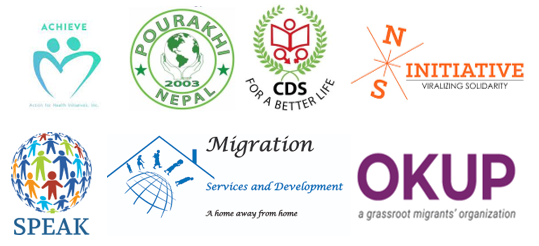
Pictures from the project activities:
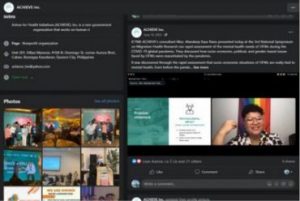
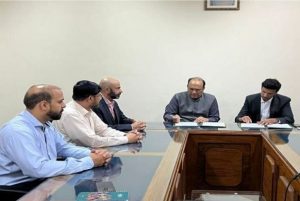
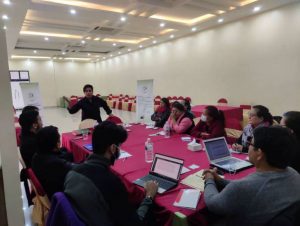
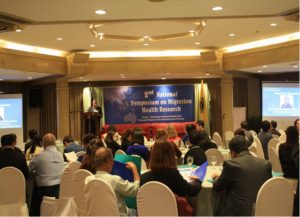
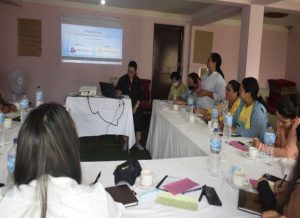
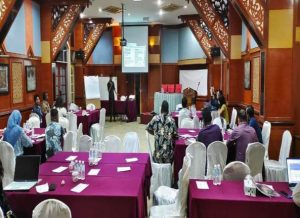
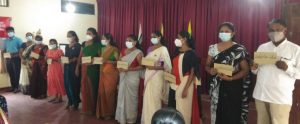
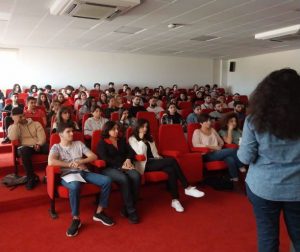
Increasing access to services for MWs, including health, legal, and other relevant services
